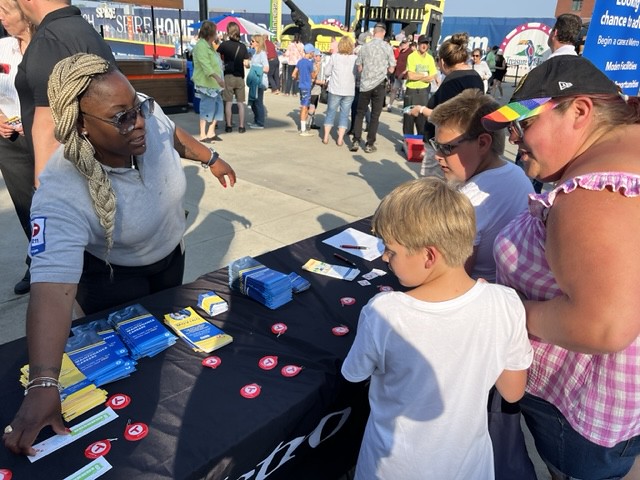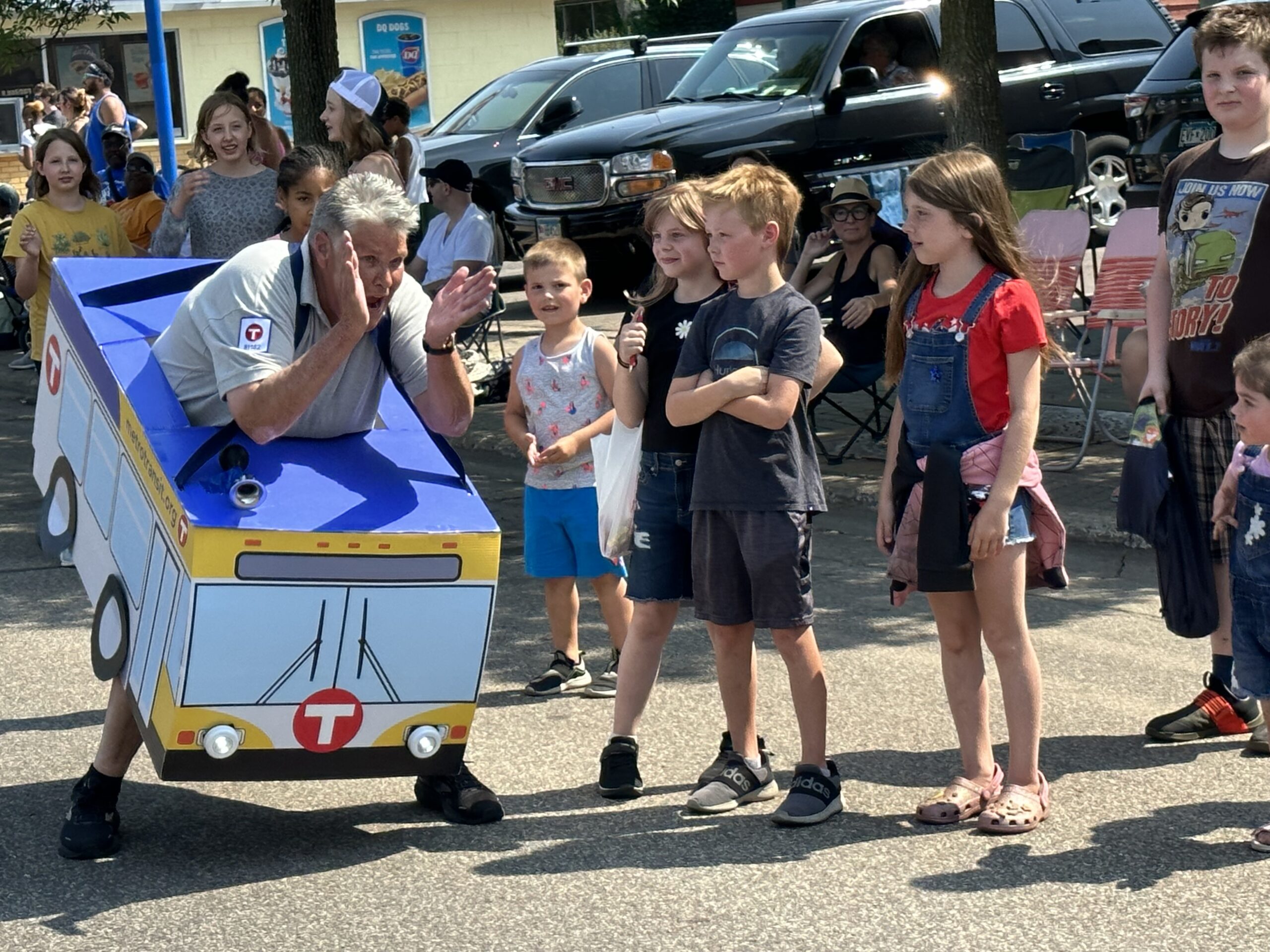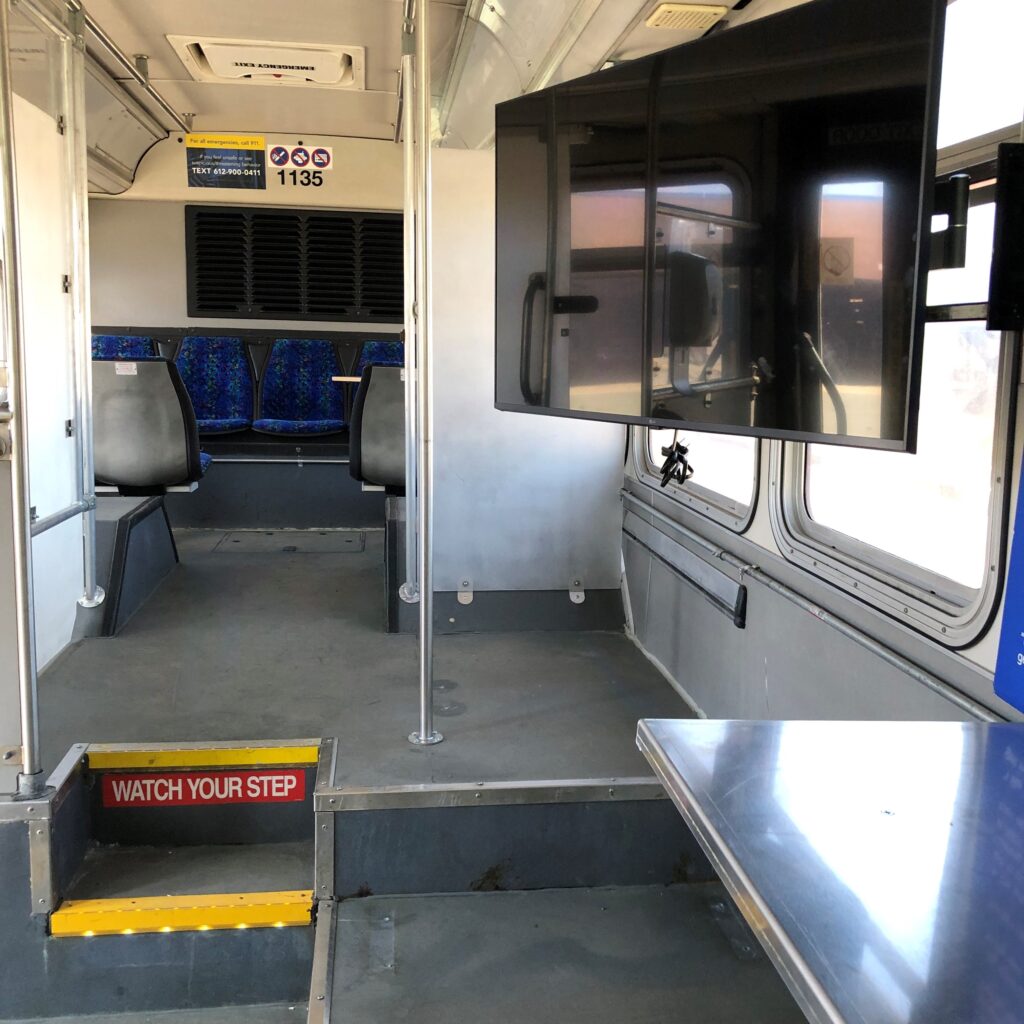Recruiting Through Connection
Recruiting Through Connection
Metro Transit, Minneapolis-St. Paul, Minnesota
Key Takeaways:
- The OECC (Operators Engaging and Connecting Communities) program sends operators out to community events as a recruitment tool and to help the community understand the role of the operator.
- The program was started by employees—it now has a dedicated full-time coordinator, and the effort has the support of labor and management and numerous additional departments agency-wide.
- Operators are usually not pulled off the road for OECC events; involvement in the program is typically counted as optional overtime.
- More than 50 operators have participated at hundreds of community events.
- Participating operators must have a strong work record, a positive attitude about the job, and good customer service skills.
- Operators gain a new perspective on themselves and the communities they serve as a result of their participation in the OECC program.
The job of a bus operator has never been easy, but it may be getting harder. Operators have always worked alone in a sedentary, unpredictable, and often stressful environment. While the technical aspects of the job are paramount, customer service remains a primary job function—yet rising rates of homelessness and drug use on transit make it difficult for the operator to maintain control of what goes on within their vehicle. Transit agency reports to the National Transit Database (NTD) revealed a 121% increase in assaults on transit workers between 2008 to 2021.
Despite these stressors, a career as a bus operator can also be hugely rewarding. “You get all these different opportunities to do things, meet all these different people, and you impact all these different people’s lives,” said former operator Anna Penland of Metro Transit (Minneapolis, MN). “To be able to have a real impact on someone where they tell you years later, ‘I remember you, Driver. I remember what you did for me,’ or ‘I remember your kindness’”—those sentiments, Penland explained, make the job entirely worthwhile.
How, then, to enable the public to really see the person in the driver’s seat—the challenges operators face, the joyful parts of the job, everything these workers contribute to moving the community? Around 2010, a dynamic group of employees at Metro Transit decided to take action. They wanted people to understand what transit is and all that it offers, as both a means of mobility and a potential employer. Aaron Koski, Senior Manager of Workforce Development, said the motivating question was, “How can we get our employees and all their positive energy and positive thoughts about their job, how can we transfer that out into the community, so they can see this is a fantastic place, and a fantastic place to work? We want to provide more than just a safe, reliable ride; [we want to show] we’re a foundational part of the community.”
This group founded the Operators Engaging and Connecting Communities (OECC) program. Through OECC, Metro Transit sends operators to community gatherings across the Twin Cities, from Hmong food markets to Open Streets parades to houses of worship for tabling after services. OECC attended five different events on Juneteenth alone. The operators host a table at these events and talk to people about Metro Transit, both as an employer and as a public transportation provider. “Since joining the OECC program, my perspective and understanding of our communities have deepened immensely,” said a participating operator. “When I drive through or when the communities come up in conversations, I now have personal stories and experiences to draw from, making me more empathetic and informed. Personally, the OECC program has instilled in me and enriches a greater sense of purpose and responsibility . . . It’s more than just an event-based program; to me it’s a movement that fosters understanding, collaboration, and growth.”
The operators Metro Transit sends into the community have a strong work record, a positive attitude about the job, and good customer service skills. At cultural or religious events, Metro Transit has found it helpful, when possible, to choose an operator who comes from each respective community to staff the event. Operators are not pulled off the road for OECC events; involvement in the program is counted as optional overtime. More than 50 operators have participated, and interest has grown so strong that Metro Transit has rolled out a formal application process. Collaboration with the Maintenance and Marketing Departments within Metro Transit has been essential to the program’s success.

An Essential Recruitment Strategy . . .
A major goal of OECC is operator recruitment. Like many agencies around the country, Metro Transit has struggled in recent years with operator shortages. OECC has opened up new avenues for recruitment and allowed Metro Transit to engage populations it hadn’t reached in the past. “It’s very clear to me after hundreds and hundreds of events . . . the best way to market this position is to bring an operator with you,” Koski explained. A prospective job applicant may not believe a pitch from someone they perceive to be a “sales guy,” but hearing directly from someone in the job about why it’s meaningful to them and why it fits well into their lives has been compelling.
One of the benefits of OECC over participation in a standard career fair is that Metro Transit doesn’t have to compete with other employers for participants’ attention; they are very often the only employer present.
. . . With a Personal Connection
OECC is also about building relationships between Metro Transit and local communities. “We don’t want to just drive through these neighborhoods. We want to be a part of them. We want to make sure they understand they’re as important to us as we are to them,” said Penland, who now serves as OECC Coordinator. To that end, Metro Transit has made all its recruitment materials available in multiple languages.
Fun and joyful elements make OECC distinctive, too. One OECC ambassador even wears a bus costume to events, which children love. Metro Transit regularly brings along a real bus and allows the public to board, look around, and see firsthand the tasks the operator does behind the wheel. At times this bus has doubled as an on-the-spot, unintimidating job interview space; it has been retrofitted to have a private room in the back.

But the problems OECC is addressing are far more serious than its friendly atmosphere would suggest. Despite their critical role in keeping people mobile, operators haven’t enjoyed the social esteem they deserve. Penland says to operators, “Do you know the greatness you have? Do you recognize that your child . . . would be so proud of you for being who you are? The parents who are bus operators who bring their children [find] the child has an awe; they can’t believe their parent is actually doing this. They’re so proud of their parents.” Through OECC, Metro Transit has illustrated the same point for countless Minnesotans. As transit operators face heightened difficulties in their jobs, programs like OECC accomplish the essential task of helping them connect on both a professional and personal level to the greater community.

To learn more, contact:
- Anna Penland, Metro Transit: anna.penland@metrotransit.org
- Shayna Gleason, Transit Workforce Center: sgleason@transportcenter.org
Contributing Author: Shayna Gleason




